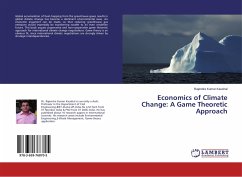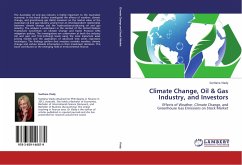Global accumulation of heat-trapping from the greenhouse gases results in global climate change has become a dominant environmental issue. An economic argument can be made, so that reducing greenhouse gas emissions would essentially be transferring wealth to an even wealthier future. This book argues cooperative and non-cooperative game theoretic approach for international climate change negotiations. Game theory is an obvious fit, since international climate negotiations are strongly driven by strategic interdependencies.
Bitte wählen Sie Ihr Anliegen aus.
Rechnungen
Retourenschein anfordern
Bestellstatus
Storno








